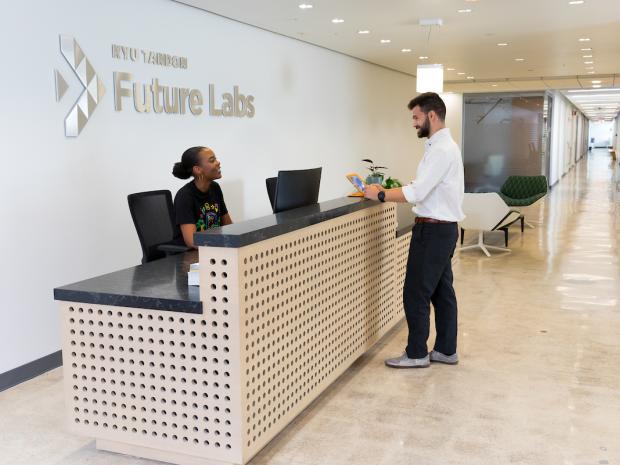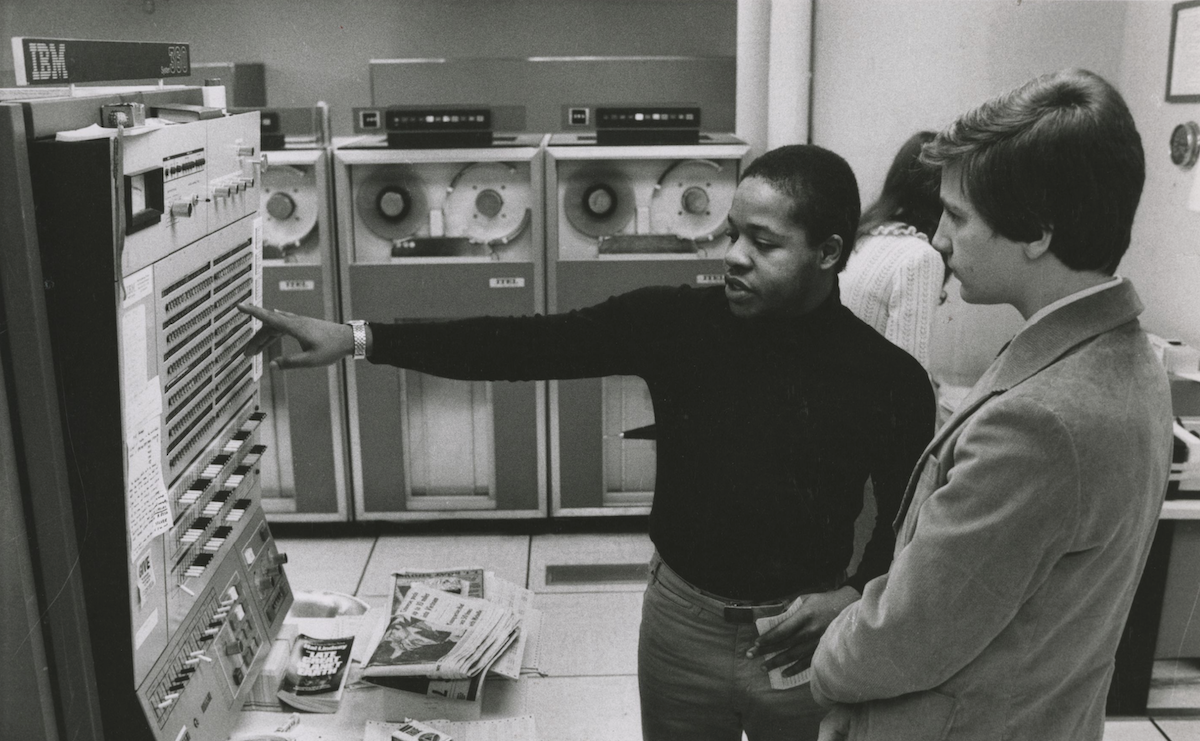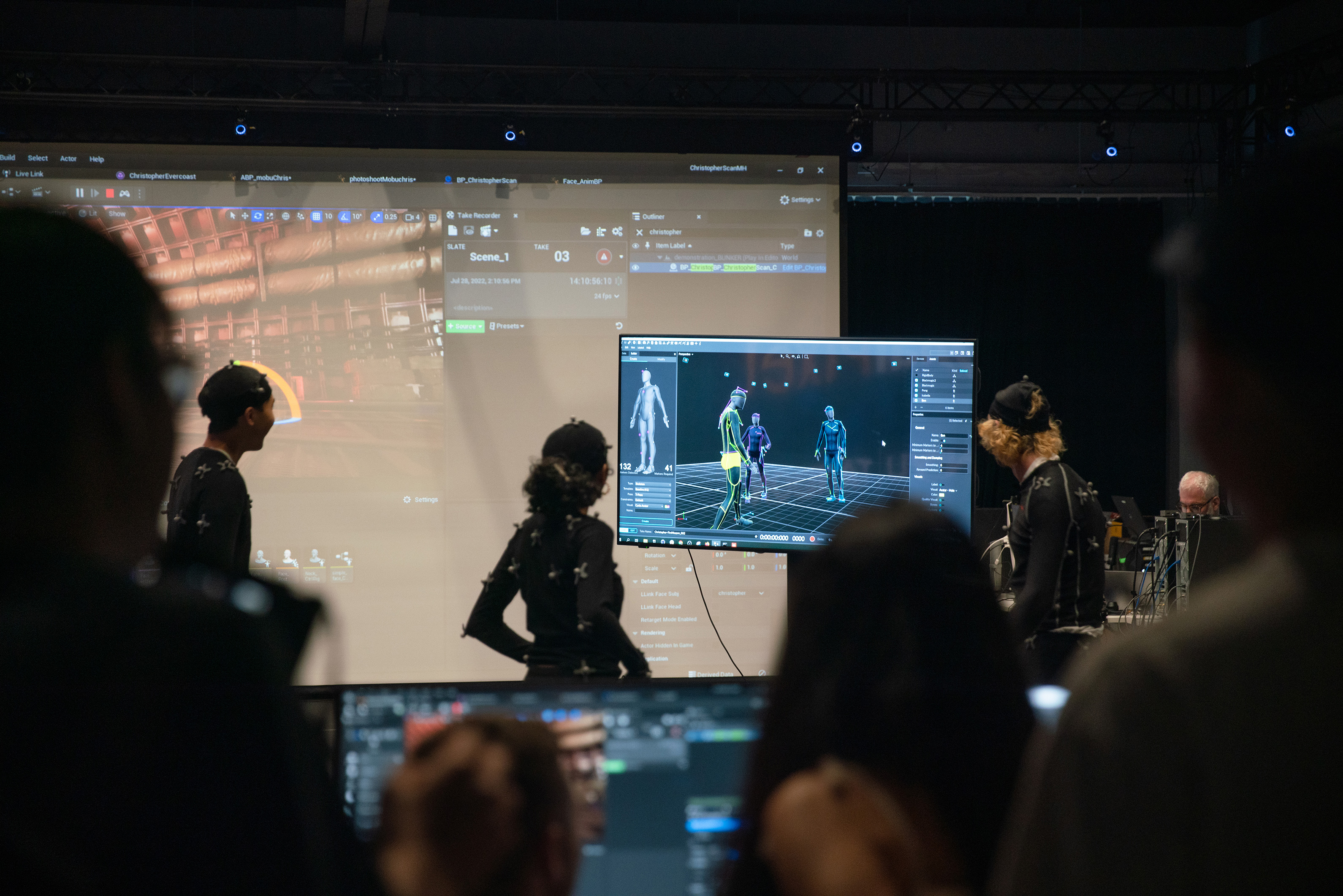Engineering and entrepreneurship
A perfect match

It would be fair to say that the entire field of technology and computing wouldn’t be the same without the ingenuity and resilience of Tandon entrepreneurs — entrepreneurs like alumni Charles R. Flint (1868) who went on to form the Computing-Tabulating- Recording Company (later renamed IBM) in 1911, and Eugene Kleiner (1948) who co-founded Fairchild Semiconductor, a pioneer in the transistor and integrated-circuit manufacturing that gave Silicon Valley its name, as well as a venture capital firm that provided funding for such now-iconic companies as Amazon, Google and AOL. The impacts of Tandon entrepreneurs go well beyond tech and computing to other vital areas that touch our lives every day, from healthcare to national security. That includes engineers like Professor Emeritus Kurt Becker, a pioneering plasmas expert whose technology has helped keep countless patients safe and free from infection. (A start-up he was affiliated with was acquired by the medical company Stryker Instruments.)

Becker — just one of the many Tandon faculty who have received the rare honor of being elected to the National Academy of Inventors — is among those responsible for our university’s ranking as one of the top in the world based on number of patents issued. (Fun fact: alum Jerome Lemelson, who earned degrees here in 1947 and ‘49, averaged more than one patent a month, ultimately amassing more than 600, including the drive mechanism that made portable cassette players and camcorders possible, over his four-decade career.)
And while innovation and entrepreneurship is a core part of Tandon’s history, it’s also a thriving part of its present and future across many fields, thanks to a growing entrepreneurship ecosystem in NYC and Brooklyn, spurred in no small part by NYU and Tandon.
A First-of-Its-Kind Entrepreneurial Network
A new era at the School of Engineering kicked off in 2008: that year, New York City officials realized the need to diversify the economy of the city by encouraging entrepreneurial activities and a start-up culture. The city’s Economic Development Corporation thus joined forces with the School to launch, in the Fall of 2009, the Varick Street Incubator, the first in what would become the NYU Tandon Future Labs, a powerful network of facilities that have had, since their inception, an economic impact of more than $4.1 billion across the state, created over 3,200 jobs, and graduated more than 200 start-up ventures.
Soon after the downtown Manhattan facility opened a Business Insider reporter wrote: “It’s very rare that a joint effort between the public, private, and education sector comes together to produce meaningful results. However, The Varick Street Incubator may be a shining example and roadmap for other cities to follow on how to foster tech innovation. ... It very well may be that the Varick Street Incubator is the top place in NYC for new entrepreneurs to call home.”

The network, housed on the 7th floor at 370 Jay Street, now encompasses the Data Future Lab, which incubates early-stage businesses working - among others - in the areas of computing, artificial intelligence, machine learning, digital technologies, and technologies based on mix reality; the Urban Future Lab, which was established in late 2014 as a hub for smart cities, clean energy, and smart-grid technology; and the Veterans Future Lab, a 2016 addition aimed at supporting enterprises founded by the nation’s military veterans or their spouses. In 2024, a new Future Lab is launching focusing on game design and supporting the growth of a burgeoning new sector of the innovation economy.
Inventive Students
Tandon kindles a spirit of innovation and entrepreneurship from the very first day an undergraduate student walks through our doors, and some launch businesses even before graduating.
Take Daniella Blanco (‘20), who co-founded Sunthetics while still a Ph.D. candidate, with the aim of making the chemical manufacturing industry more sustainable. Named the top student entrepreneur in the world in 2019, she starred in the National Geographic documentary, Own the Room, about that global competition, and has been included on lists like the Forbes 30 under 30, MIT Technology Review’s Top Innovators under 35, and Inc Magazine’s Top Female Founders.
Joe Landolina (‘14) has had a similarly stratospheric trajectory. At the age of 17, he created a sustainable plant-based gel technology called VETIGEL that stops traumatic bleeding in seconds and launched a startup out of his dorm room — similar to the way in which Def-Jam records was launched in Weinstein Hall 40 years ago. That revolutionary creation made him a participant at the first-ever White House Demo Day with President Barack Obama and one of only three finalists in Sir Richard Branson’s Extreme Tech Challenge, the world’s largest startup competition for purpose-driven companies.
In 2023 that homegrown biotech startup, now named Cresilon, received FDA approval to apply the gel to human use. On its path to reaching this monumental milestone, the company raised over $80 million in venture capital and grew to more than 60 employees working to transform trauma care.
Many more entrepreneurial stars are in the pipeline. Consider, for example, CARA Systems, Inc, co-founded by two Tandon M.S. graduates in Mechanical and Aerospace Engineering, Prithvinath Garigapuram (‘23) and Srushti Katore (‘23), who are developing a dynamic risk assessment tool for intracranial aneurysms.
Then there’s Nyamitse-Calvin Mahinda (‘25), a master’s student in the Department of Biomedical Engineering and the CEO and co-founder of Vital Audio, developers of a software platform that provides asynchronous cardiac monitoring and patient screening over ordinary phone lines, with no special software, wearables or other devices needed by the patient. That lets healthcare systems automatically direct patients to the most appropriate care, reducing unnecessary hospital admissions and freeing up physicians to attend to those with more acute conditions.
Winning Ways
Vital Audio was a 2023 winner of the Berkley Entrepreneurship Challenge, which provided them with $75,000 in seed funding. That’s just one of the many competitions available across the University for aspiring founders, however.
At Tandon, the flagship student competition is known as InnoVention, which offers student-led ventures an opportunity to compete for $25,000 in cash prizes while receiving perks such as coaching, community, legal services and workshops. Cresilon and Sunthetics have been among its past winners, and others include:
- Mana Health, which powers corporate and New York State health care databases with a simple yet efficient portal for patients and practitioners.
- BotFactory, which supports the maker movement and organizations like NASA with a 3D printer that allows rapid electronics prototyping.
- Physiclo, which makes activewear with built-in resistance technology to enable more efficient athletic training.
Beyond the Lab
NYU Tandon has always encouraged its researchers — students, postdocs, and faculty alike — to extend their thinking beyond the lab and to translate their promising results into marketable new products, processes, devices, or services.
Since 2011 the school has participated in the National Science Foundation’s I-Corps program, which provides STEM-based faculty, Ph.D.s, and postdocs with the support they need to commercialize their work. Teams whose ideas are accepted receive hands-on training in the lean start-up methodology and customer discovery, as well as up to $50,000 in grant money. Later, they can apply to be part of the highly selective NYU Tech Venture Accelerator, a six-month program that addresses legal and intellectual property, regulatory matters, and sales and marketing, among other topics, and provides up to another $50,000.
A Large Umbrella
Since 2018 all the entrepreneurial activities taking place at Tandon — whether they be curricular or extracurricular, internal or external — have fallen under the auspices of the Tandon Institute for Invention, Innovation, and Entrepreneurship (IIIE), an umbrella group that continues to find new ways to boost opportunities for the School community and beyond. In 2020, for example, the Future Labs A/X Studio was established to help build companies resulting from NYU’s intellectual property, and the following year, an agreement was reached to allow entrepreneurial endeavors to use Tandon’s Motion Capture Studio and other facilities at the Brooklyn Navy Yard.

In 2023, the School reached out a hand to startups leveraging chemical processes, which often require expensive wet benches and fume hoods not readily accessible to business founders unconnected to major academic or industrial facilities. AIR COMPANY — a resident of the Urban Future Lab that uses CO2 to create sustainable alcohols and fuels that can be applied to a variety of consumer and industrial products — was the first to accept the offer of a highly specialized suite of equipment, and the company expects to be able to offer internships to promising Tandon students, making it a win-win situation for all involved. New initiatives are well underway to back translational, lab bench-to-bedside research into better methods of preventing, diagnosing, and treating myriad medical conditions; help startups unleash the power of offshore wind; and continue to encourage the innovative spirit that has long made Tandon a force in the entrepreneurial world.

